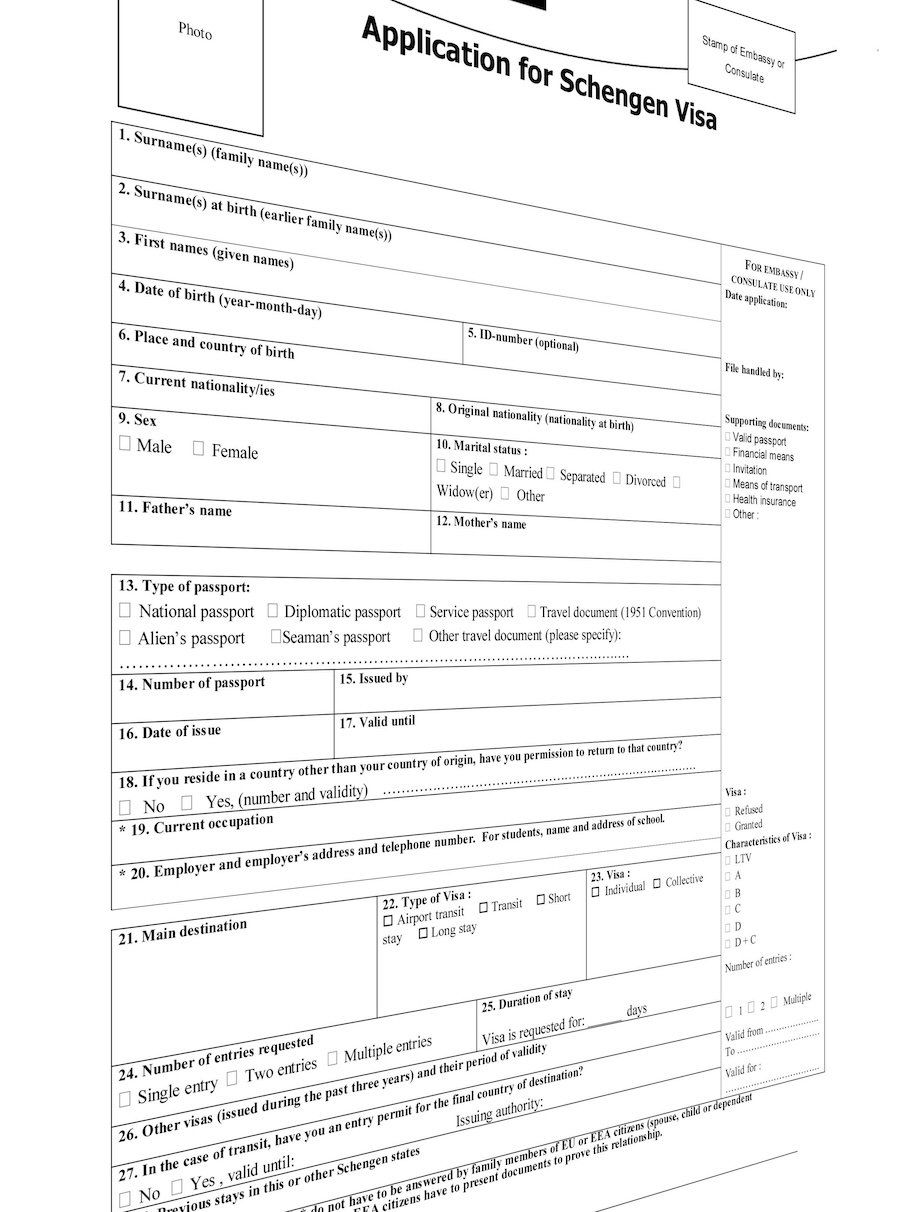Germany, a cornerstone of Europe’s economic and cultural landscape, has long been a magnet for immigrants seeking opportunity, safety, or a fresh start. In 2025, the nation stands at a crossroads, balancing stricter immigration policies with a pressing need for skilled workers. This article explores Germany’s evolving visa processes, the challenges immigrants face, personal stories of triumph and struggle, and practical advice for cultural adaptation, offering a comprehensive guide for newcomers navigating this dynamic environment.
Evolving Immigration Policies in Germany
In 2025, Germany’s immigration landscape reflects a delicate balance between openness to global talent and tightened controls on irregular migration. The CDU/CSU-SPD coalition, led by Chancellor Friedrich Merz, has introduced reforms addressing labor shortages while responding to political pressures for stricter border management. A key development is the creation of the Work-and-Stay Agency, a digital platform designed to streamline visa and work permit applications for skilled professionals. This agency aims to simplify the process for employers and immigrants, particularly in high-demand sectors like healthcare, IT, construction, and engineering, where Germany faces a 1.8 million worker shortage projected to grow by 2030. These reforms signal Germany’s commitment to attracting talent, but they come with heightened scrutiny for asylum seekers and irregular migrants.
(The coalition has also tightened asylum rules, maintaining border controls at all German borders until a robust EU external border system is established. A “repatriation offensive” focuses on deporting rejected asylum seekers, with direct rejections at borders for those ineligible for asylum—a move sparking debate over compliance with international law. Family reunification under subsidiary protection has been restricted, affecting thousands who previously relied on this pathway. Meanwhile, the Western Balkans regulation quota for workers has been halved from 50,000 to 25,000 annually, reflecting a more selective approach. Immigrants must stay informed as these policies evolve, with legislative changes expected to solidify by mid-2025.
(“Germany needs skilled workers to sustain its economy, but we must manage migration responsibly,” said Chancellor Merz in a May 2025 address. “Our reforms aim to welcome those who contribute while ensuring security and order.”
Visa Pathways for Newcomers
Germany offers a range of visa options tailored to different purposes, from short-term visits to long-term residency. The Schengen Visa allows stays of up to 90 days within a 180-day period for tourism, business, or family visits, processed through German consulates. For those planning to stay longer, the National D Visa covers work, study, family reunification, and au pair programs, requiring detailed documentation like employment contracts or university acceptance letters. Processing times vary, with Schengen Visas taking 15–30 days and D Visas up to 3–6 months, depending on the applicant’s country and case complexity. Accuracy in applications is critical, as errors can lead to delays or rejections.
(A standout reform for 2025 is the Chancenkarte (Opportunity Card), a points-based visa for skilled non-EU workers. Applicants earn points for qualifications, language skills, work experience, and age, with a minimum threshold for eligibility. The Chancenkarte allows holders to enter Germany for up to 12 months to seek employment, a game-changer for professionals without a prior job offer. Tip: To maximize points, obtain certified translations of degrees and take German language courses (B1 level or higher). The EU Blue Card, another option for highly skilled workers, now has a lowered salary threshold of €45,000 annually in shortage occupations, making it more accessible.
(Practical tip: Engage an immigration lawyer or relocation service like Schlun & Elseven Rechtsanwälte for complex cases, especially for family reunification or asylum applications. Always verify requirements through official sources like the German Federal Foreign Office, as consulates may have region-specific rules. Early preparation, including notarized documents and proof of funds, can prevent costly setbacks.
Challenges of Immigration in 2025
Navigating Germany’s immigration system is no small feat, particularly with the tightened policies of 2025. Non-EU expats face stricter work permit rules and higher qualification thresholds, especially for low-skilled jobs. Juan, a software developer from Argentina, shared his experience:
“I arrived in Frankfurt expecting a smooth transition, but new inspection protocols and missing paperwork delayed my work permit by two months. It was stressful, but joining expat forums helped me prepare better.”Such stories highlight the emotional and logistical toll of bureaucratic hurdles.(
Asylum seekers face even steeper challenges. The May 2025 border tightening, effective from May 6, introduced rigorous checks at land and air borders, with police presence increased by 15%. Rejected asylum seekers now face expedited deportation, and reports of direct border rejections have raised concerns among human rights groups. The European Court of Human Rights is reviewing claims of illegal pushbacks, underscoring the tension between enforcement and humanitarian obligations. Legal support is essential for asylum seekers, who should contact organizations like Pro Asyl for free guidance.
(Family reunification has also become more restrictive, with subsidiary protection holders—those granted temporary protection but not full asylum—facing new barriers. In 2024, asylum applications dropped by 50% compared to 2021, reflecting stricter vetting, while deportations rose by 30%. These shifts create uncertainty for families, particularly from conflict zones like Syria or Afghanistan. Tip: Document familial ties thoroughly, including marriage certificates or birth records, and seek legal advice to navigate tightened regulations.
(Overcoming Bureaucratic Hurdles
Germany’s bureaucracy is legendary, often requiring multiple visits to the Ausländerbehörde (Foreigners’ Office). Language barriers, long wait times (sometimes 6–8 weeks for appointments), and complex forms can overwhelm newcomers. Practical tip: Use online platforms like InterNations or LiveInGermany.de to connect with expats who share templates and advice for applications. Learning basic German (A2 level) can also ease interactions with officials, as many documents and interviews are conducted in German.
Another challenge is the housing crisis in urban centers like Berlin, Munich, and Hamburg, where rental prices have soared by 12% since 2023. Immigrants often struggle to secure apartments due to competition and landlord requirements for proof of income or residency status. Tip: Register with the local Einwohnermeldeamt (Residents’ Registration Office) within 14 days of arrival to obtain a residence certificate, a prerequisite for leases and bank accounts. Temporary housing options like Airbnb or shared flats (WGs) can bridge the gap.
Success Stories of Resilience
Despite challenges, many immigrants thrive in Germany, contributing to its vibrant economy and culture. Take Aisha, a nurse from the Philippines, who arrived in 2024 under the Skilled Immigration Act.
“The visa process was daunting, but the hospital sponsoring me helped with paperwork. Now, I work in Munich, and my colleagues feel like family. Learning German was tough, but it opened doors to a better life.”Aisha’s story reflects the opportunities available in healthcare, where 50,000 new nurses are needed by 2030. Her success underscores the value of employer sponsorship and language skills.(
Similarly, Ravi, an IT specialist from India, leveraged the Chancenkarte to secure a job in Berlin.
“I scored high on the points system because of my degree and B2 German certificate. Within six months, I landed a contract with a tech startup. The Work-and-Stay Agency’s online portal made it easier to connect with employers.”Ravi’s experience highlights how 2025’s reforms, like the Chancenkarte, empower skilled workers to pursue opportunities independently. Since 2021, skilled worker immigration has risen by 77%, a testament to Germany’s appeal.(
Cultural Integration and Adaptation
Adapting to German culture can be as challenging as navigating bureaucracy. The emphasis on punctuality, direct communication, and rule-following often surprises newcomers. For instance, casual tardiness, common in some cultures, is frowned upon, with 86% of Germans prioritizing timeliness, per a 2024 cultural survey. Tip: Arrive 5–10 minutes early for appointments, and practice straightforward, polite communication to build trust with colleagues and neighbors.
Language remains a significant barrier. While English is widely spoken in tech hubs like Berlin, 70% of job postings require at least B1-level German. Enrolling in integration courses, subsidized by the government, can accelerate language acquisition and provide cultural insights. These courses, offered by institutions like the Goethe-Institut, cover history, laws, and social norms, helping immigrants like Maria, a Syrian refugee, feel at home.
“The integration course taught me about German holidays and workplace etiquette. It gave me confidence to interact with locals,”she shared.
Social integration also involves embracing local traditions. Joining community events, such as Oktoberfest or neighborhood Stammtisch (regulars’ table), fosters connections. Tip: Use platforms like Meetup to find expat groups or local hobby clubs, from hiking to book clubs, to build a support network. Understanding regional differences—Bavaria’s conservatism versus Berlin’s cosmopolitan vibe—also aids adaptation.
Legal Guidance and Staying Compliant
Staying compliant with Germany’s immigration laws is critical, especially with 2025’s stricter enforcement. The abolition of “turbo naturalization”, a fast-track citizenship option after three years for highly integrated individuals, means applicants now need five years of residency (or three for spouses of German nationals). Dual citizenship remains allowed if the home country permits it, a relief for many. Tip: Start preparing citizenship applications early, ensuring proof of integration, such as language certificates and stable employment.
(For businesses hiring immigrants, compliance with the Skilled Immigration Act is essential. Employers must verify work permits and adhere to EU Blue Card salary thresholds. Non-compliance can result in fines up to €30,000 or visa revocations. HR teams should consult resources like Centuro Global’s 2025 guide for navigating tax and social security risks. Tip: Use the Work-and-Stay Agency’s portal to verify visa statuses and streamline hiring processes.
(Practical Tips for a Smooth Transition
Preparation is key for immigrants. Here’s a checklist to ease the journey:
- Documents: Gather passports, degrees, and financial proof, translated into German by certified translators.
- Housing: Secure temporary accommodation and register with the Einwohnermeldeamt within 14 days.
- Language: Enroll in German courses (A2–B1) to boost employability and integration.
- Networking: Join expat communities like InterNations or local Vereine (clubs) to build connections.
- Legal Support: Consult immigration lawyers for complex cases, especially asylum or family reunification.
Looking Ahead
Germany’s 2025 immigration reforms reflect a nation striving to balance economic needs with social and political realities. While opportunities abound for skilled workers, challenges like bureaucracy, housing, and cultural adaptation persist. Stories like Aisha’s and Ravi’s show that resilience, preparation, and community support can transform challenges into successes. As Germany navigates this new era, immigrants equipped with knowledge and resources can find their place in its vibrant society.
Final tip: Stay proactive by following updates from official sources and expat networks. Germany’s doors remain open to those who prepare, adapt, and contribute to its future.

















0 Comments